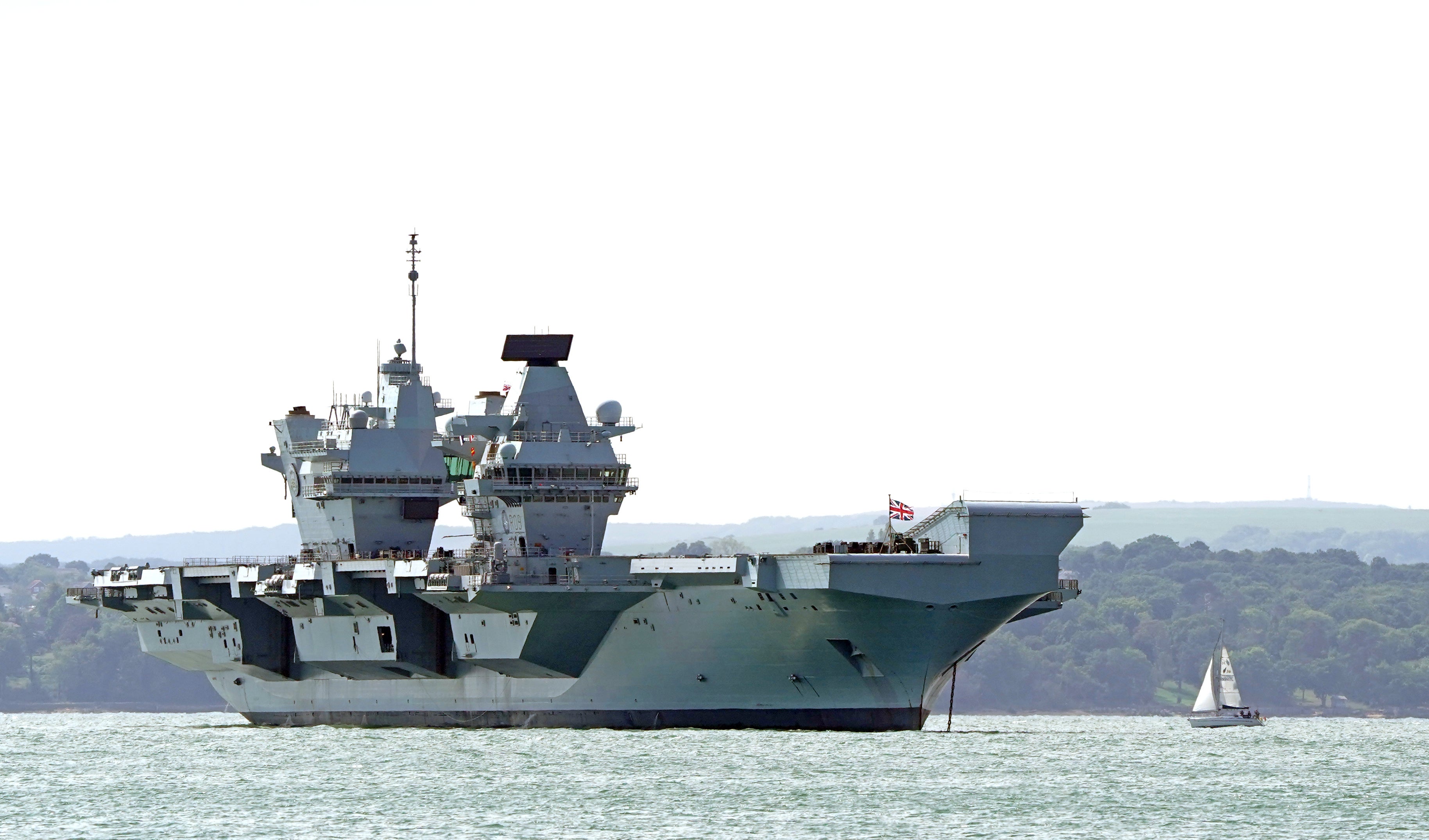Engineers inspect damaged propeller shaft of broken down aircraft carrier
The HMS Prince of Wales developed a mechanical issue off the south-east coast of the Isle of Wight on Saturday.

Your support helps us to tell the story
From reproductive rights to climate change to Big Tech, The Independent is on the ground when the story is developing. Whether it's investigating the financials of Elon Musk's pro-Trump PAC or producing our latest documentary, 'The A Word', which shines a light on the American women fighting for reproductive rights, we know how important it is to parse out the facts from the messaging.
At such a critical moment in US history, we need reporters on the ground. Your donation allows us to keep sending journalists to speak to both sides of the story.
The Independent is trusted by Americans across the entire political spectrum. And unlike many other quality news outlets, we choose not to lock Americans out of our reporting and analysis with paywalls. We believe quality journalism should be available to everyone, paid for by those who can afford it.
Your support makes all the difference.Engineers have been carrying out inspections of the aircraft carrier HMS Prince of Wales after it broke down on its way to the US.
The £3 billion warship left from Portsmouth Naval Base on Saturday before an “emerging mechanical issue” occurred while it was off the south-east coast of the Isle of Wight.
The departure of the Nato flagship had already been delayed from Friday because of a technical problem, although it is not known if the incidents are related.
Shortly after the 65,000-tonned ship sailed on Saturday, a mechanical fault was discovered with the starboard shaft.
The carrier limped back to Stokes Bay at Gosport, Hampshire, on Monday, travelling at a rate of four knots, accompanied by tugs for the return journey to calmer waters.
On Tuesday, engineers could be seen at the stern of the vessel carrying out inspections with the aim of assessing the seriousness of the issue.
If it cannot be dealt with in open water, the carrier may have to return to Rosyth in Scotland for the shaft to be repaired in dry dock.
Rear Admiral Steve Moorhouse, director of Force Generation, who is responsible for making sure Royal Navy ships are ready to deploy, has said the Prince of Wales might not be able to complete its mission to the US where it was to undergo flight trials with the F-35B Lightning jets.
He said in a video statement: “After the initial assessment, it’s likely that the fault will require repairs which may impact the ship’s programme.
“We’ve reacted quickly to the emergent defect and are working closely with industry partners to resolve this as soon as we can.
“Rest assured, the Royal Navy continues to meet its commitments to deliver operations and to keep the UK, our partners and allies safe.”
The carrier had been given a colourful send-off as it departed on Saturday afternoon and passed thousands of music-lovers at the Victorious Festival on Southsea Common in Portsmouth.
Pop favourites Sugababes were in the middle of their set when the giant ship sailed past with the crew lining the flight deck to get a view of the festival.
The Nato flagship was sailing to undertake training exercises with the US Navy, the Royal Canadian Navy and the US Marine Corps.
The programme was expected to include exercises with the F-35B Lightning jets.
A Royal Navy spokesman said on Saturday: “HMS Prince of Wales will cross the Atlantic with her task group, ready to push the boundaries of uncrewed technology and the tactics used by the UK’s two new Queen Elizabeth-class carriers.
“Along with notable port stops in New York, Halifax in Canada and the Caribbean, the next three months will see the Prince of Wales task group work closely with US allies, operating F-35B jets and uncrewed systems which will define Royal Navy aviation of the future.
“With fleet flagship HMS Queen Elizabeth also set to deploy to the Mediterranean and Baltic this autumn at the heart of a potent Royal Navy task group, it will mean both UK aircraft carriers will be operating F-35B jets thousands of miles apart.”